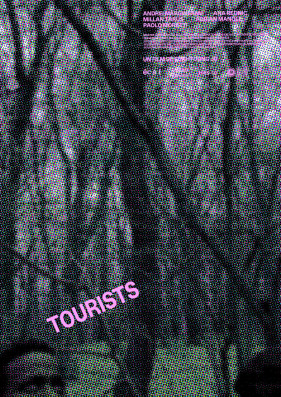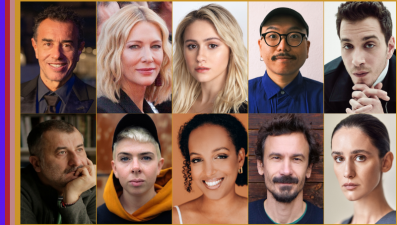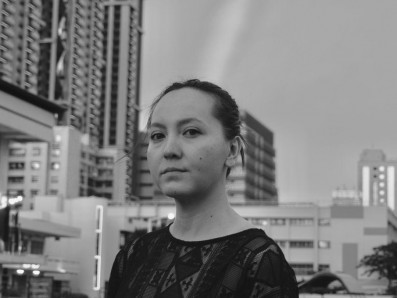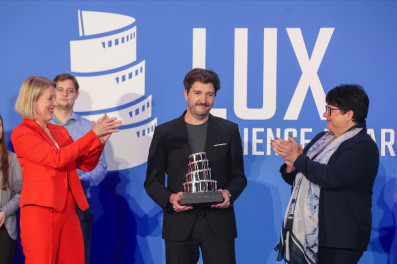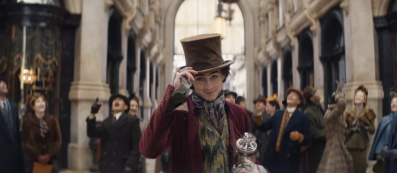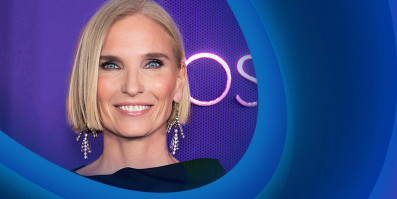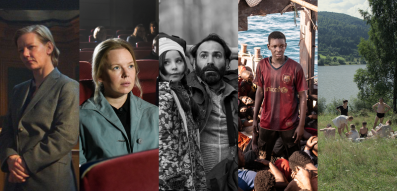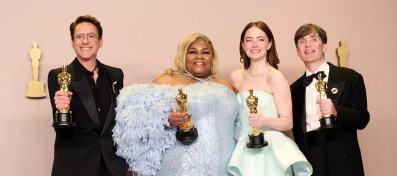Andrey Tarkovsky. A Cinema Prayer - Ode to genius
A review of the latest documentary on Andrei Tarkovsky
Without my name, or glory, or even boots—
with frozen eyes, I’ll gaze at the snow, blood-coloured.
(Arsenii Tarkovsky, Selected Poems)
Cold, foggy field lightened by weak dawn stretches up in its deep silence. The camera holds for a second before it gives way to a baby boy firmly asleep in his crib and then, lastly, to a black-and-white clip where a child awakens with an eager look to his father, a firm man with a forlorn look. The narrator is unnamed but this solemn yet sharp voice belongs to no other but Andrey Arsenyevich Tarkovsky, heralded by many as one of the greatest film directors to date. With almost a dozen documentaries made over the years (Meeting Andrei Tarkovsky: "Cinema Is A Mosaic Made Of Time, Voyage in Time, Directed by Andrey Tarkovsky-to name only a few), this time it was his son Andrey A. Tarkovsky who has carefully compiled many of his father's interviews in visual memory, a sort of a movie that Tarkovsky the Father would have crafted alone as a never-ending maze of atmospheric visages moulding a single experience- a man belonging to the cinematic pursuit of life´s meaning, of human soul painted over the moments in time, of time´s construction within one frame.
Quoted in John Gianvito´s Interviews, Tarkovsky remarked that his films :
“…are not a personal expression but a prayer. When I make a film it´s like a holy day. As if I were lighting a candle in front of an icon or placing a bouquet of flowers before it. The spectator always ends up by understanding when you are sincere in what you are telling him. I don´t invent any language to appear simpler, stupider, smarter. A lack of honesty would destroy this dialogue. Time has worked for me.”
Through Cinema As A Prayer, we are in his presence entirely as such eloquent dissection of nature is laid bare as a fact. What Dostoyevsky created in literature now, we may agree, Tarkovsky amongst some rare others like Sergei Parajanov, Kurosawa or Bergman, had done for cinema in terms of human testimonial to life and its mysteries. Cinema follows his path from his family home in Zavrozhia on the Volga in 1932. During his career, he made seven movies, Ivan's Childhood in 1962, Andrey Rublyov in 1966, Solaris in 1972, Mirror in 1978, Stalker in 1979. In 1983 he made Nostalgia in Italy and his last film, The Sacrifice, in 1986. His great wish of making a movie based on Dostoevsky´s The Idiot or The Possessed remained unfulfilled. Consolidating his expressionism as his fame rose outside of Russia as the Poet of cinema, Tarkovsky strove with the most serious efforts to work Inflow with the inner consciousness of the narrative and the construction of screen-life. His character is, much like his work, a continuous battle of opposites. We learn from Sculpting In Time forehand just what the skeleton of the thought fused with core idea produces such a unique ballad of time and space.
But his character, Tarkovsky as a Persona outside of the shooting room, is a beast of its nation. Faithfully devoted to his craft, by some a mischief-maker in youth, serious at almost all time with some rare, great grins, he wears a kind of sorrow so elaborately put into existentialistic dread. “Learn to love silence. Loneliness” he flusters, leaning on a tree. His each takes and the title is a grabbing onto some other life form, some ideal made of each and beating heart of a man, some nightmarish, feverish survival that grows in full stillness somewhere in the deep forests of unknown age. He is as attentive to details, as merciless in the search for the truth constructed in seconds as he is humbled by the eternal curve of humanity.
Without a doubt, this last effort, a glimpse into Tarkovsky´s views using his voice throughout many interviews has more than its historiographical value. We are introduced, without reserve, with an artist whose desire lay in the dialogue, ambivalent and evanescent as it is- between cinema as life and the audience sensing it. Evocative in the full light of slow-moving images, his reflective, layered technique of atmospheric architecture flows to construct the character through their presence in the moment and the space given. Everything that has happened is the sum of this moment that passes over us. Time is reflected in a single frame, its captive being the action reborn after each take. Even after the symbolism is born, reformed and His cinema is a reverence of soul, a reverence made of the vastness that oppresses us between memory and sadness. With a documentary sewn together through his voice, Tarkovsky comes across in such a unique way, almost prophetically aware of the task betrothed to directors-the creation of a fully inhabitable world.


